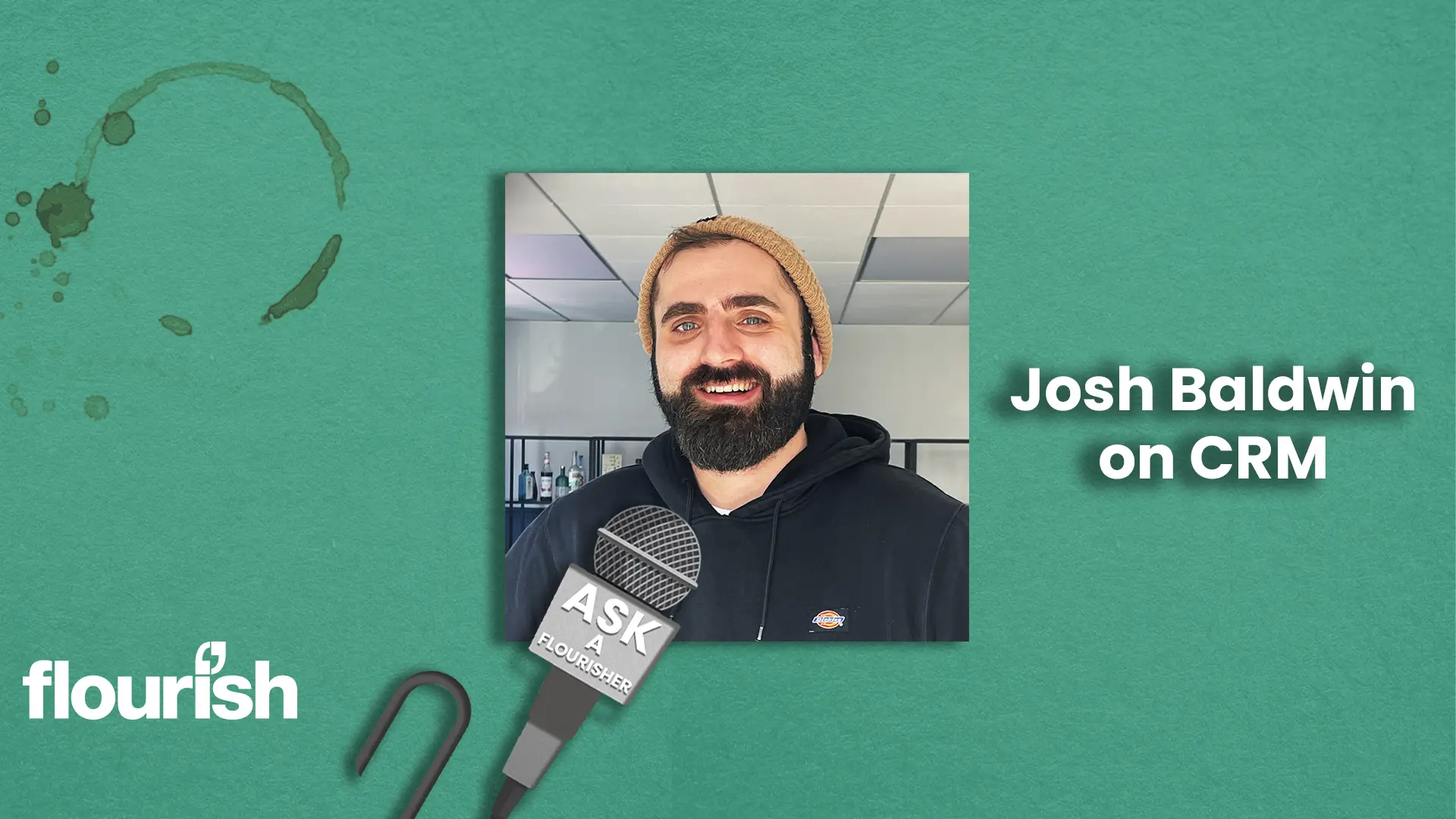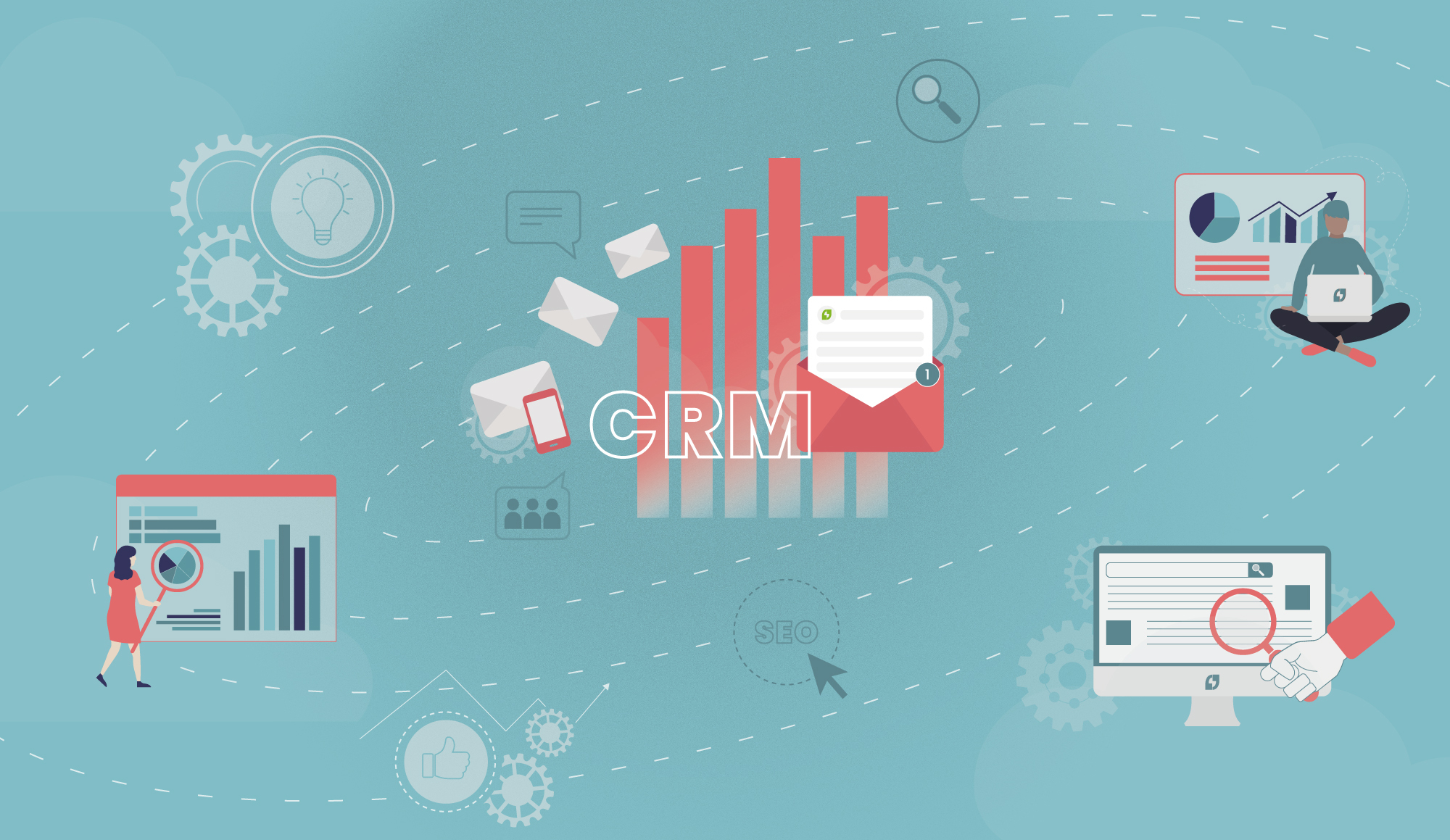'Ask A Flourisher' - Interview with Josh Baldwin on CRM
1. How long have you worked in marketing?
I got my first foray into marketing when I was 16. At the time, I was doing odd bits of summer work as a labourer, then decided to supplement my wages with some promo work, starting out with things like leaflet drops in Bath for interior design firms, leading all the way up to some field marketing at festivals doing CO testing for the EU HELP 2.0 anti-smoking campaign back in 2009. After school I got a job interning at a digital marketing firm in south Bristol, and that was about 10 years ago?! And I’m still working in the field!
2. What do you do at Flourish?
I am currently an Account Director looking after a few of our top clients in the gaming and food & beverage sectors. I think 10-year-old Josh would be pretty chuffed if he knew what he’d be working on 20 years later.
3. Do you have a specialism?
I’ve always described myself as a bit of lynchpin / generalist, so, wide range of expertise. Predominantly, I’ve got a digital focus looking after multi-product strategies, automation, lead segmentation, web dev, inbound search and CRM. So, you could say I’m a strong all-rounder that can pull together and integrate right fit channels.
4. What's the scariest event you've ever spoken at?
Weirdly it was one of the smaller ones. I’ve had no issue talking in front of 300+ people at the Bristol Beacon. But the scariest one was probably when I was maybe 23 and I was presenting to a group of about 40 seriously clever South West based developers. Some advice that my other half used to give me was, “to feel confident, you only need to know 10% more than the person in front of you” – at that talk, I knew 100% less than everyone in that room, so I felt a bit like a charlatan. They were super welcoming though, and at the drinks after the talk I got a lot of pats on the back, so overall pretty rewarding.
5. If you had one piece of top advice for marketers, what would it be?
Measure everything (or as much as is humanly possible) including sentiment, success, search performance, campaign attribution, audience makeup. It’s easier and easier to record meaningful data and insight in a single view these days, it should be informing all your activity, and it doesn’t necessarily need to be through an expensive suite of tools. Setting up audience views, custom events and multi app tracking in something like GA4 (Google Analytics) – which is free, will be a huge help to any marketers.
6. What do you think is the biggest mistake that marketers make?
I mean, not to sound like a broken record, but not making data informed decisions, or spending too much too quickly without data to justify the spend. Elaborating a little bit on that, test and learn frameworks don’t sound particularly sexy, but planning campaigns in an agile fashion that allows room for you to measure ROI at regular intervals, amend approach, spend or even output so your focusing on what works is the key.
7. How important is it that marketers examine their audience before planning their campaigns?
If you’re just putting campaigns out based on assumptions or inferred audience interest, what’s the point? I’ve worked with buyer profiles and personas my whole career, and I can honestly say – who I’m talking to, their pain points, TOV, acquisition channels, social watering holes, sources of truth and trust and their demographic makeup has been the backbone of any strategy I’ve ever worked on. Not knowing who your audience is, where they are or what they want, would be like just taking your “marketing mud” and instead of throwing it at a wall and seeing what sticks, closing your eyes, spinning in a circle and throwing it willy nilly, right?
8. What are the top resources that you recommend for gaining audience insights?
Things like YouGov, Experian data or Acorn profiles are useful but can be really expensive. So, if you need to start building your own supporter personas/profiles, there are a few routes I’d go down; investing in some social listening tools to roughly measure audience mood, brand or keyword mentions through tools like Buffer, Buzzsumo or Sprout Social are a good way to setup monitoring streams to gauge sentiment and interest. Putting my old SEO hat on, a good way to build a picture of pain points, need and interest for any CRM programme would be to review search results. Google trends, Answer the Public and even Google Adwords keyword planner, are all great ways to research the questions your audience are actively asking. You can use your findings to inform your campaign strategy or just firm up your audience profiles.
9. Do you have any advice for setting realistic targets and achieving them?
There are a lot of acronyms in marketing, but the one I use the most is SMART, for setting SMART goals – a common term used in the industry.
- Specific – What is it you’re going to do or want to achieve?
- Measurable – What is the core objective or KPI we’re going to measure?
- Attainable – Based on existing data and anecdotal performance, can we actually achieve this?
- Relevant – Is what we are doing relevant to wider business goals and objectives?
- Timely – When do we want to achieve this by?
Following this method is a sure-fire way to help you realistically reach your goals and achieve results over time. If you use SMART or any other framework whether it’s just KPIs or OKRs you should have a way of consistently and iteratively planning firmer and tighter objectives throughout the year.
10. What are the 3 most important aspects of planning a marketing campaign?
Oh wow, can I only answer with 3? Relevance, timeliness and reach? That’s 3 right? There’s no point delivering a message to someone at the wrong time in their journey. There’s also no point if the message isn’t contextually relevant to that individual either because they lack awareness, it’s not useful/insightful or it’s just the wrong channel. There is also no point in delivering something that doesn’t hit the right audience segment or channels. CRM flows through every aspect of marketing so it is good to consider these points from the beginning, and if you haven’t done so, start implementing these principles as soon as you can.
11. In your professional opinion, why is building trust with your audience so important?
I think because of the current climate, most media and comms seem to be viewed through a lens of scepticism and/or mild cynicism. Objective facts or benefits are less influential in shaping opinion than appeals to emotion and personal belief. There’s a real need for authenticity, relevance, honesty and compassion in what we do. In terms of building trust and maintaining some of those traits on a budget, or without the need to spend any money, I’d borrow some advice from an incredible talk I saw by Antonia Cross (Head of Marketing and Communications @ Caring In Bristol) which was about comms during a crisis. She spoke about building a thoughtful brand and marketing infrastructure by first starting out and monitoring internal factors of brand awareness and affinity. She suggested that measuring internal indicators which need continuous health checking to make sure marketing is integrated, consistent and can make a sustained impact. I’m not going to be able to do her talk justice, but in a nutshell: if you have a stellar social media and an amazing brand identity, but your staff/agency aren’t proud of the work or brand, don’t understand the brands mission, vision or values then that’s going to show to your audience in potentially lacklustre, contrived or cash centric comms. You just won’t build transparency or trust effectively.
Need help planning your strategy or implementing a new customer journey? Get in touch with our team.



